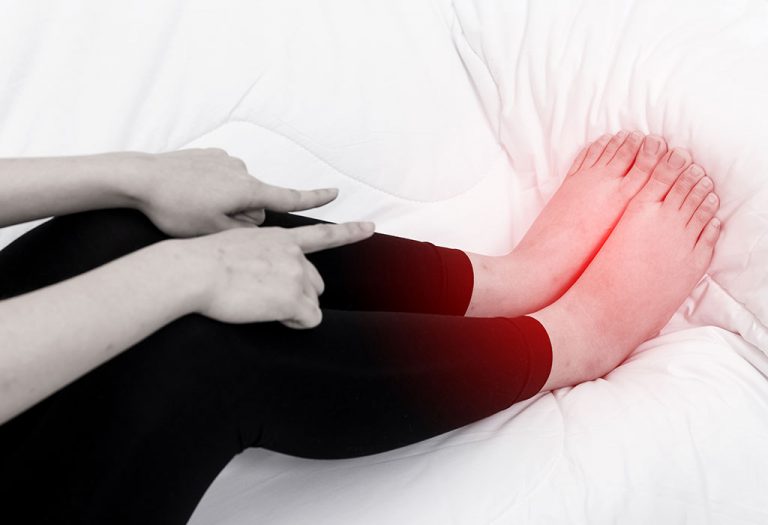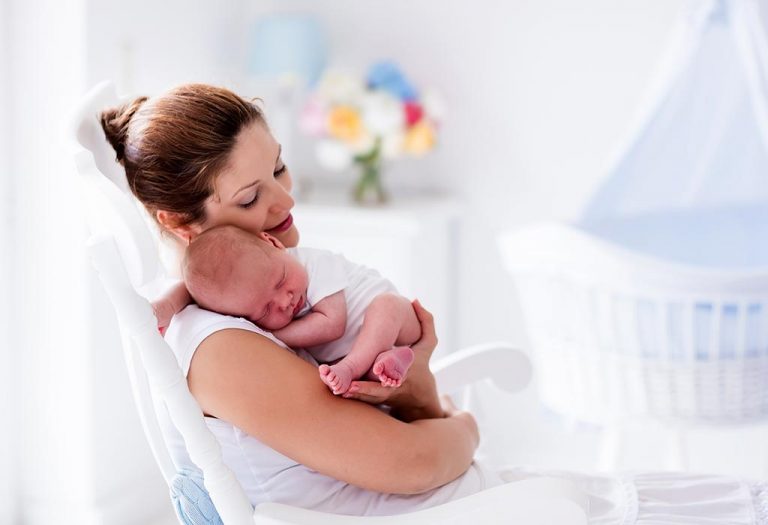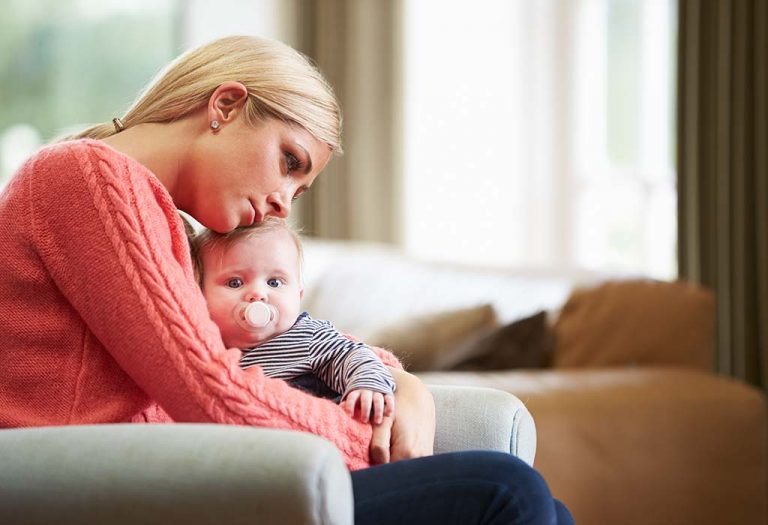Postpartum Gas: Casues, Symptoms and Home Remedies

The journey of pregnancy and postpartum is an important phase marked by a multitude of physiological adjustments in a woman’s body. Postpartum, the digestive system often undergoes changes, leading to symptoms like bloating, constipation, and postpartum gas. While these discomforts are prevalent among new mothers, their impact on daily life can be significant. Delving into the underlying causes of these digestive shifts is pivotal in formulating effective strategies to alleviate discomfort and promote overall well-being during the postpartum period. By comprehensively understanding and addressing these gastrointestinal changes like post pregnancy gas, women can navigate their recovery journey with greater ease and comfort, ensuring a smoother transition into motherhood.
Is It Normal to Experience Gas After Delivery?
Yes, it is totally normal to experience postnatal gas. Some of the symptoms of gas after delivery include farting, belching, and abdominal pain. You may also feel abdominal cramps. Most women experience this problem after giving birth.
Possible Causes of Postpartum Gas
There are many reasons why you may experience a gas problem after delivery (postpartum gastritis). It can be because of the type of food you consume or because of certain physical bodily aspects as well.
1. Changes in Your Diet and Lifestyle
The food that you consume after delivery has a huge effect on your digestive system, which is returning back to normal gradually. Eating food items that are high in fibre, sweetening agents like sorbitol, or even lactose can make you feel gaseous. Whole grains, certain fruits, and even chewing gum can also cause gas. Sometimes, eating hurriedly can result in gas as well.
2. Constipation
If you feel gas trapped in your tummy post-childbirth, it could be because of constipation. The bowel movements in a person suffering from constipation are usually erratic. In severe cases, the faeces that emerge could be full of lumps and hard, making it more difficult to pass them easily. Combined with a sense of bloating and pain in the abdomen can make things worse.
3. Undergoing Episiotomy During Delivery
Sometimes, natural delivery is not possible. If a woman forces it to happen, there is a risk of tissue tearing occurring around the vaginal area, leading to multiple complications later on. Therefore, doctors usually make a surgical cut in the region between the vagina and the anus to reduce the stress. Once the delivery is complete, the cut is allowed to heal. But during the process, as the muscles in the pelvis are weak, and anal strength is reduced as well, it may lead to withholding of the gas and stools due to gas pain after birth.
4. Pelvic Floor Damage
The entire journey of pregnancy, as well as the process of childbirth, is quite taxing on the body, especially on the muscles around the back and the pelvis. The muscles on the floor of the pelvis play a major role in controlling the anal area. During childbirth, anal incontinence may occur, causing the sphincter to tear and injure the nerves in the area. This leads to a loss of control over the anus, which makes it difficult to carry out bowel movements, as well as pass gas. On the other hand, you may end up passing stool or gas without any control, causing leakage as well.
5. Hormonal Changes
Postpartum hormonal fluctuations can affect digestion and bowel movements, leading to increased gas production. These hormonal shifts can alter the function of the digestive system, contributing to gas and bloating.
6. Reduced Physical Activity
After childbirth, many women experience a decrease in physical activity due to recovery and caring for a newborn. Reduced movement can slow down digestion, leading to gas buildup in the digestive tract. Increasing physical activity gradually can help alleviate postpartum gas.
What Are the Symptoms of Gas After Delivery?
The strongest symptom indicating the presence of gas is burping or the need to fart. At times, these can occur involuntarily as well due to the loss of muscle control. The abdominal pains could be confused for the uterus-related problem, but may actually be a result of trapped gas.
How Long Does It Last?
Postpartum gas typically diminishes as your body recovers from childbirth. For many women, this discomfort can last anywhere from a few weeks to a couple of months. The duration largely depends on factors such as diet, physical activity, overall health, and how quickly your gastrointestinal system returns to its pre-pregnancy state. Implementing a healthy diet, gentle exercise, and staying hydrated can help expedite recovery.
Factors That Increase the Risk of Developing Gas After Childbirth
Gas incontinence after childbirth is common in most women, but there are a few factors that tend to increase the risk of that occurring. These usually are:
- Injuries to the vagina during delivery
- Anal or sphincter tearing
- Changes in the internal organs from pregnancy to delivery
Treatment for Postnatal Gas
Opting for postpartum gas pain relief might be on your mind when you start experiencing these issues. But there are no specific treatments available that can provide relief from gas. Doctors usually offer medication to stimulate bowel movement. Your doctor may also suggest that you go see a physical therapist, who might suggest some exercises that can strengthen your pelvic floor muscles.
Remedies for Gas Problem After Delivery
There isn’t a specific remedy for postpartum gas. A woman’s body undergoes major changes during these months. Therefore, taking care of the trapped gas is a process that requires multiple remedies.
1. Exercise to Strengthen Your Pelvic Floor Muscles
If childbirth has caused your sphincter to tear or the episiotomy has left your anal muscles weak, you can attempt to restore its strength with some specific exercises. Make sure you consult with your doctor before starting with any exercise. Kegel exercises work wonders in this regard as they help you control your urinary muscles as well as your bowel movements effectively. Perform these exercises whenever you find the time since it won’t be evident to anybody else in the room.
2. Make Changes in Your Diet
As mentioned earlier, eating certain food items could cause a gas problem. So, avoid eating cabbage, beans, pears, apples, and other foods which are known to cause gas. A nutritionist can help you chart a proper diet plan. Also, lower the intake of fibre-rich foods as well as fatty foods. You can include probiotics since they can help replenish the good bacteria in your gut and keep it healthy.
3. Develop Proper Eating Habits
It is quite easy to swallow air accidentally without your knowledge. Stick to small food portions and spend enough time chewing each morsel before swallowing it.
4. Try Natural Remedies
Make sure you drink a lot of water and take enough rest to allow your body to recover. If your constipation is severe with hard stools, make use of natural laxatives or stool softeners with your doctor’s advice. Maintain some movement or undertake light exercise if you can. Keep away from iron supplements for now since they can make constipation worse.
Points to Remember
A painful and stressful birth, combined with the pressure on the body, can make the gas problem even worse. Once the typical signs of anal incontinence and diet are corrected, the trapped gas should find its way out easily. In extremely rare cases, the postpartum gas might be a result of other conditions as well.
- The presence of celiac disease and its symptoms.
- A manifestation of intolerance for lactose.
- Allergies due to certain food items not diagnosed before.
When to Consult a Doctor?
Most of the times, the body will recover itself in the right manner. You would be able to pass gas easily, and your bowel movements will return to normalcy as well. However, you should definitely reach out to your doctor immediately if you observe any strange or painful conditions as described below.
- A feeling of nausea and vomiting.
- Pain in the stomach and lower abdominal region.
- Discharges in the vagina accompanied by bleeding.
- A fever that has crossed 100.5 degrees on the thermometer.
FAQs
1. Does postpartum gas affect everyone equally?
No, postpartum gas can affect individuals differently based on factors such as diet, hormonal fluctuations, physical activity levels, and individual digestive health.
2. Can breastfeeding contribute to postpartum gas?
Yes, breastfeeding can sometimes contribute to postpartum gas in mothers due to hormonal changes and certain foods consumed by the mother that may pass through breast milk.
3. Can postpartum gas be a sign of a more serious condition?
In most cases, postpartum gas is not a sign of a serious condition. However, if accompanied by severe abdominal pain, fever, or other concerning symptoms, it’s essential to seek medical attention.
This was all about gas problem and gas pain postpartum. Experiencing gas and bowel problems is common after childbirth, and there is no reason to be embarrassed about it. Understanding how to get rid of gas after delivery can help you relax and concentrate on recovery as well as care for your child.
References/Resources:
1. Constipation; University of Rochester Medical Center; https://www.urmc.rochester.edu/ob-gyn/obstetrics/after-delivery/common-conditions.aspx
2. Childbirth and Delivery; About Incontinence; https://aboutincontinence.org/what-is-incontinence/causes-of-incontinence/childbirth-and-delivery/
3. Gas and gas pains; Mayo Clinic; https://www.mayoclinic.org/diseases-conditions/gas-and-gas-pains/symptoms-causes/syc-20372709
4. Bowel incontinence; NHS; https://www.nhs.uk/conditions/bowel-incontinence/treatment/
5. Recovering from Delivery (Postpartum Recovery); American Academy of Physicians; https://familydoctor.org/recovering-from-delivery/
6. Turawa. E, Musekiwa. A, Rohwer. A; Interventions for preventing postpartum constipation; Cochrane Library; https://www.cochranelibrary.com/cdsr/doi/10.1002/14651858.CD011625.pub2/full; September 2015
7. Bloating: Causes and Prevention Tips; Johns Hopkins Medicine; https://www.hopkinsmedicine.org/health/wellness-and-prevention/bloating-causes-and-prevention-tips
Also Read:
Postpartum Arthritis
Postpartum Anaemia
Weakness After Delivery
How to Recover From Pain After Delivery
Effective Tips to Deal With Postpartum Depression
Was This Article Helpful?
Parenting is a huge responsibility, for you as a caregiver, but also for us as a parenting content platform. We understand that and take our responsibility of creating credible content seriously. FirstCry Parenting articles are written and published only after extensive research using factually sound references to deliver quality content that is accurate, validated by experts, and completely reliable. To understand how we go about creating content that is credible, read our editorial policy here.





































